Advantages
Velcro curtains are suitable for creating a laconic design. The popularity of the Velcro fastening method is explained by the combination of the classic look of the fabric and convenient operation without the use of a cornice.
Velcro curtains have a number of advantages:
- they last a long time, the Velcro does not lose its qualities after washing;
- easy installation, a frame without a cornice is used;
- take up little space, a minimum of space is used;
- convenient to remove, wash and attach with Velcro;
- there is a wide choice among models (Roman, Austrian, roller blinds, blinds with loops);
- dry and iron quickly.

How to attach a curtain to a window?
You can attach curtains with velcro directly to the window frame, to the wall or to the rail, but the essence of the fastening remains the same, and hooks and rings are not used.
Installation on a plastic window
Fastening with velcro on a plastic window does not violate the integrity of the window. The Velcro is glued along the perimeter of the window, or only at the top and sides.
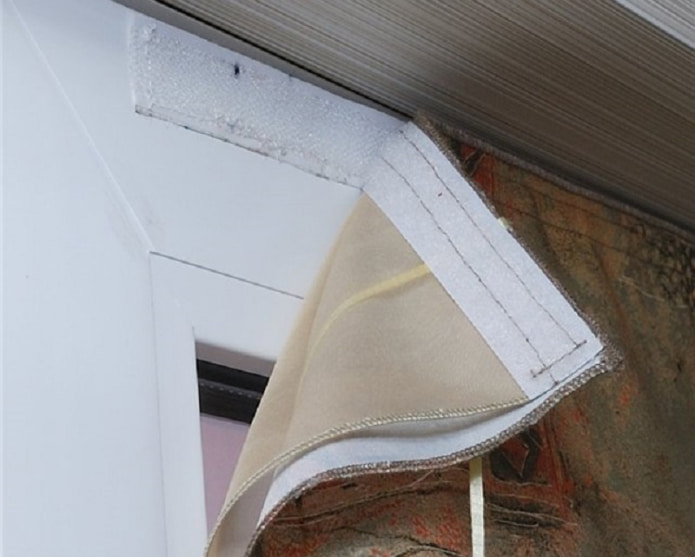
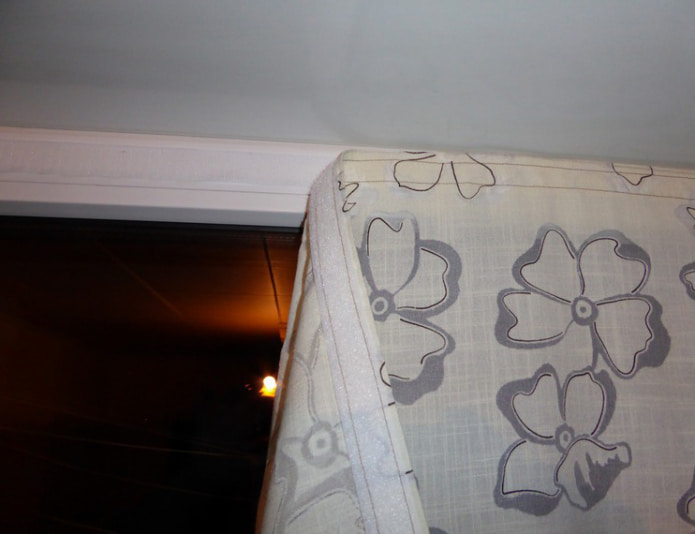
On the wall
When attaching to the wall, the hard part of the Velcro is fixed with screws or glue, and the soft part is sewn to the back side of the curtain.
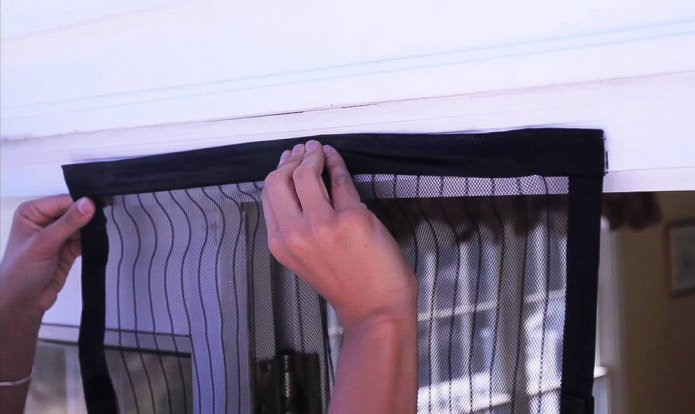
On a wooden strip
The adhesive tape is attached to the wooden strip using glue or a stapler. The rail itself is attached to the wall with screws.
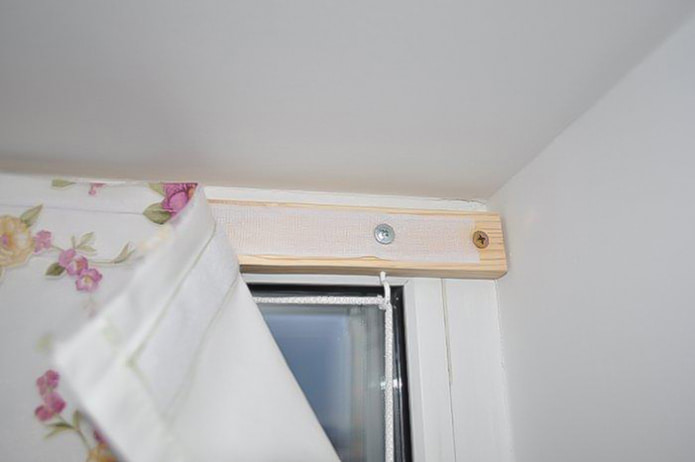
Types
Velcro curtains are most often short, and they are most often presented in a modern style on the market.
Roman
Curtains with light folds and an opening mechanism will suit any interior and room. If the curtains on each window are of a different length, the room will look unusual.
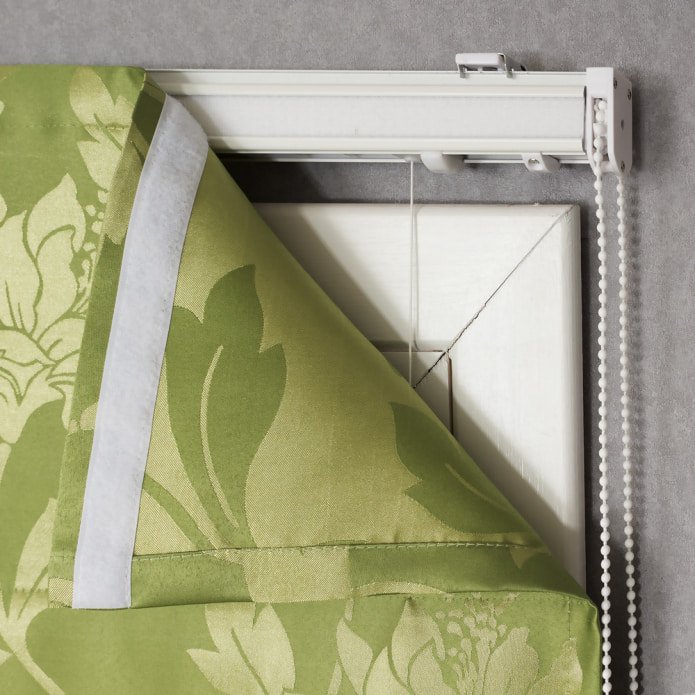
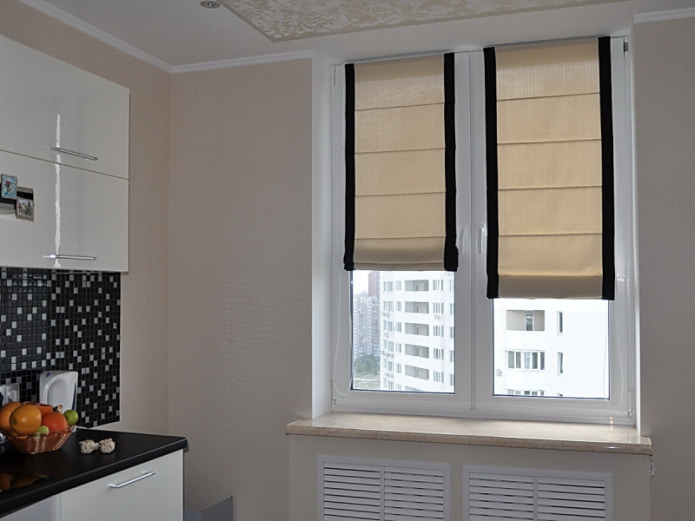
Japanese
The curtains look like fixed panels, they are suitable not only for the oriental style. Due to the tension and weighting from below, the fabric retains its shape and will not move in the wind.
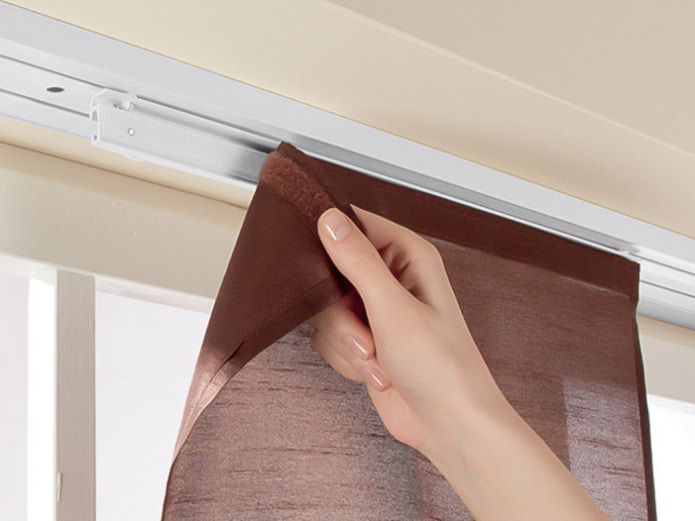
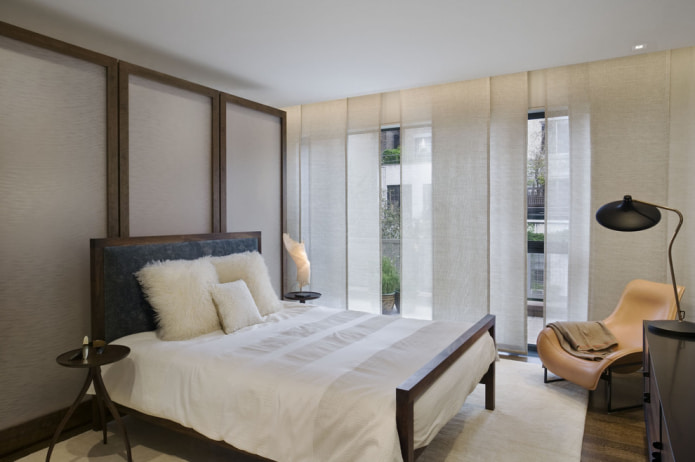
Roller
Most often used to emphasize minimalism. Suitable for a balcony, loggia. It is better to attach them to the window under each sash separately.
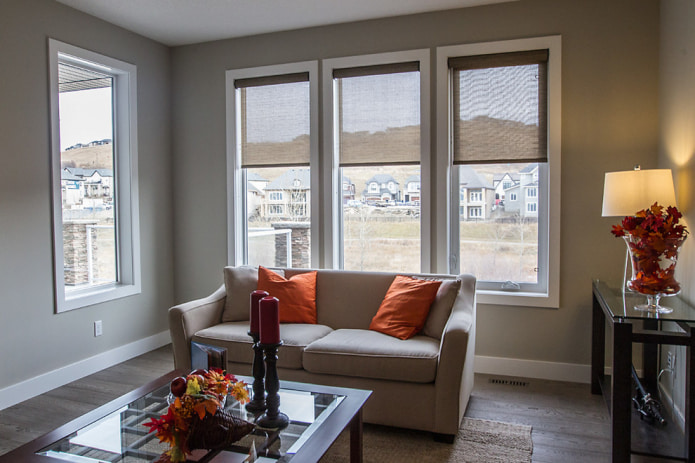
Installation guide
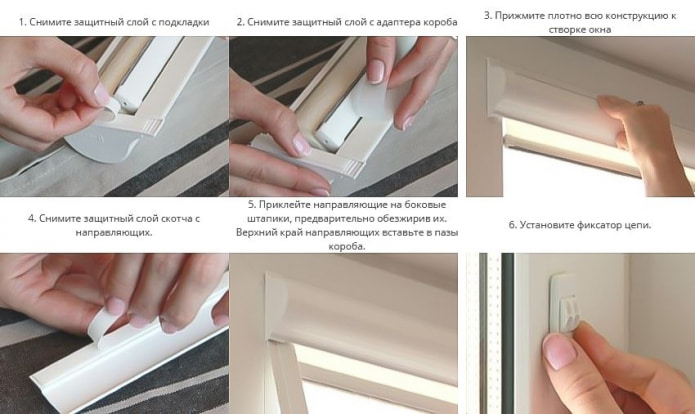
On loops
Curtains on loops on Velcro are similar to ordinary curtains, they are attached to the curtain rod, but to remove them you do not need to remove the curtain rod, just disconnect the Velcro.
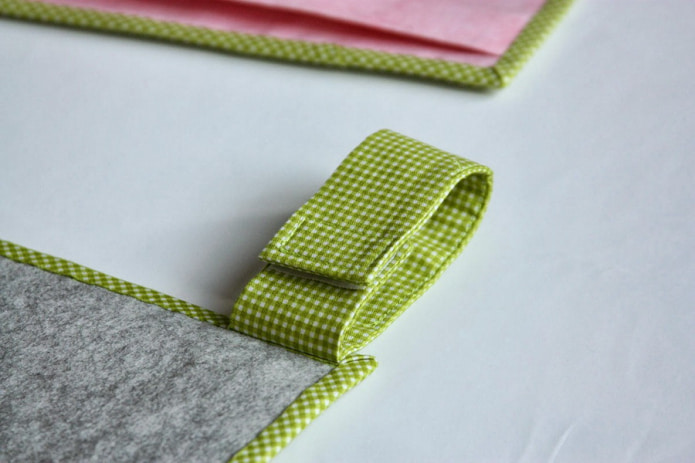
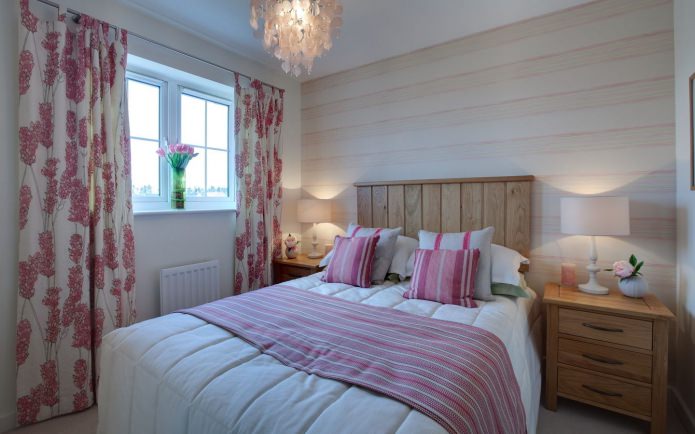
Choosing the material and color
The fabric should not be heavy, this is the main condition. Therefore, a lightweight natural or synthetic material will do.
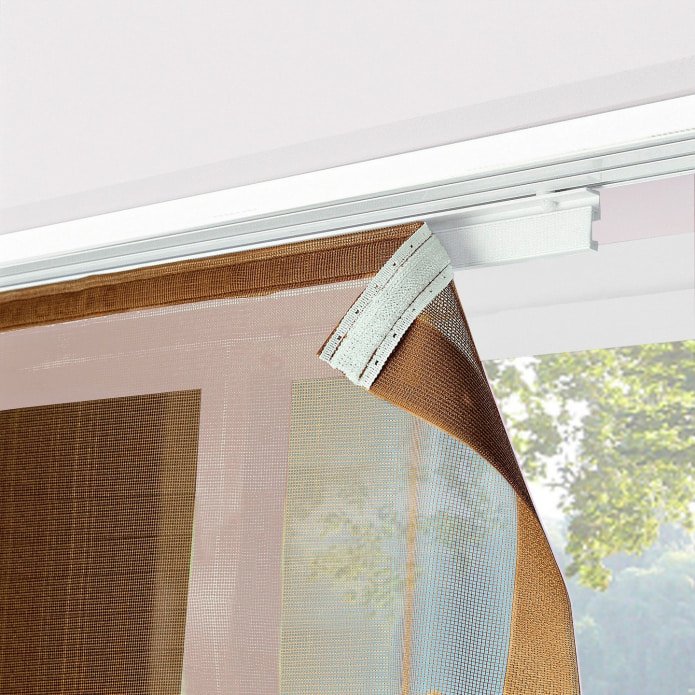
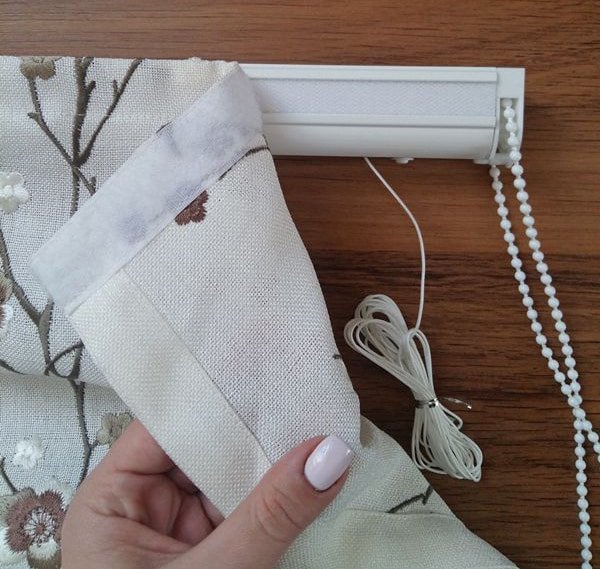
For the balcony, it is best to use a blended fabric with polyester, organza, because it does not fade in the sun and dries quickly.
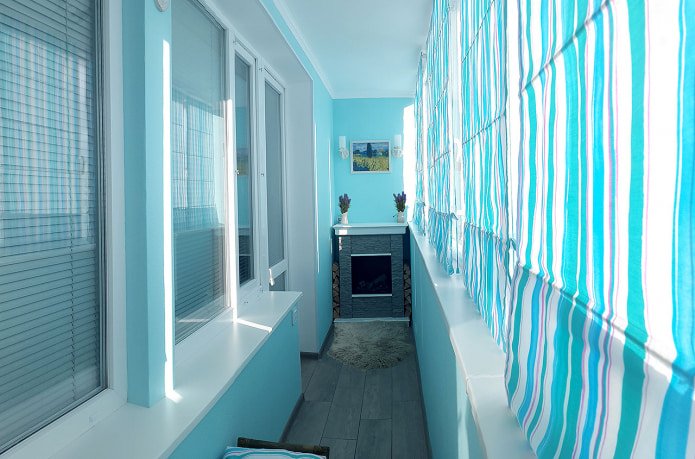
Flax, cotton, jacquard, satin and bamboo, which are impregnated with a special dirt-repellent mixture, are suitable from natural fabrics.

When choosing the color of the fabric, it is important to maintain the unity of style. They can be neutral beige, white, pastel colors, or bright colors, with inserts or a pattern. Different windows in one room can be decorated in different colors. They can be combined with wallpaper, repeat its pattern, or be plain.
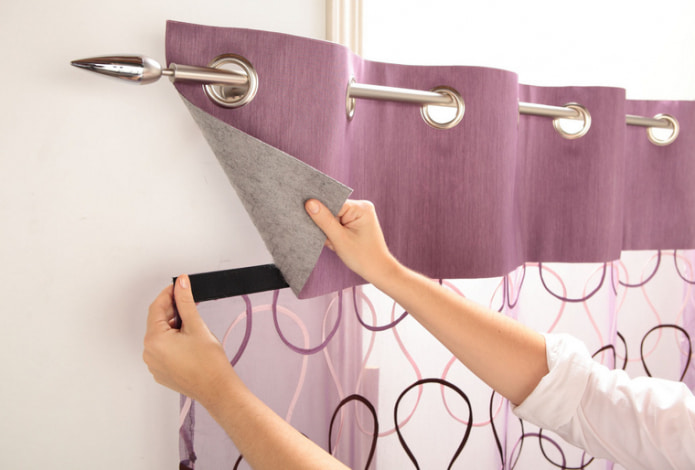
Photo in the interior
Curtains with velcro can be translucent or thick, depending on the chosen fabric. They darken the room better because there is no free space between the curtain and the window.
Balcony or loggia
Velcro curtains are often used to cover windows on balconies and loggias. This is a convenient and economical way to hide the room from sunlight and street views due to the rational use of material. A curtain with Velcro is a convenient option for decorating a door to a balcony, since there is no cornice or hanging fabric above it, the curtain is not touched when exiting and the passage remains free.
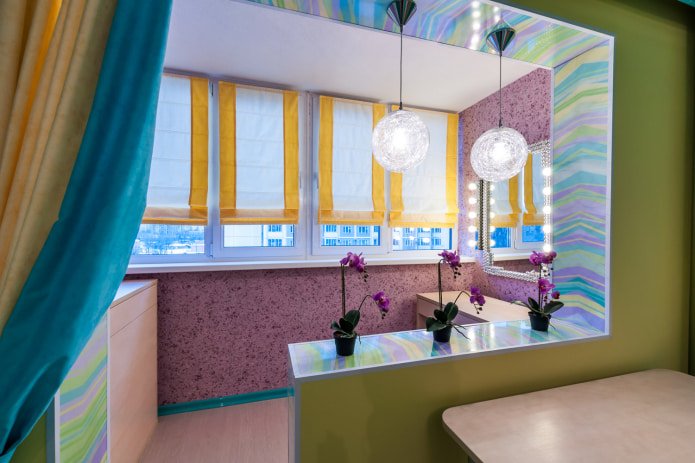
Kitchen
Velcro curtains are suitable for the kitchen if the window is located above the sink or stove, as well as if the window sill will be actively used as a shelf or additional workspace.
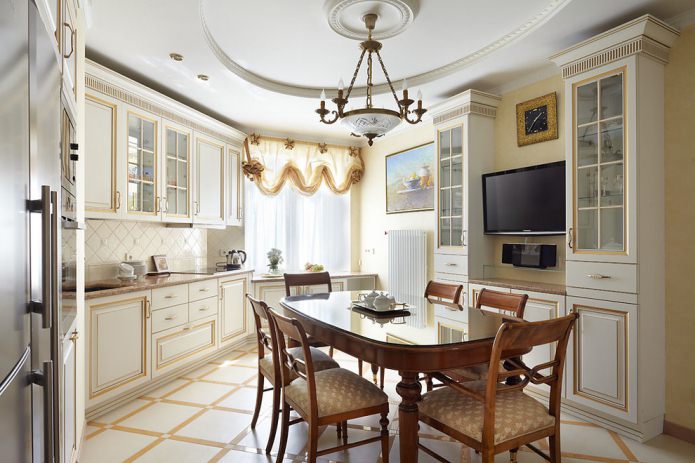
Children’s
Curtains with Velcro made of thick fabric are suitable for the children’s room, this will ensure a sound daytime sleep for the child.
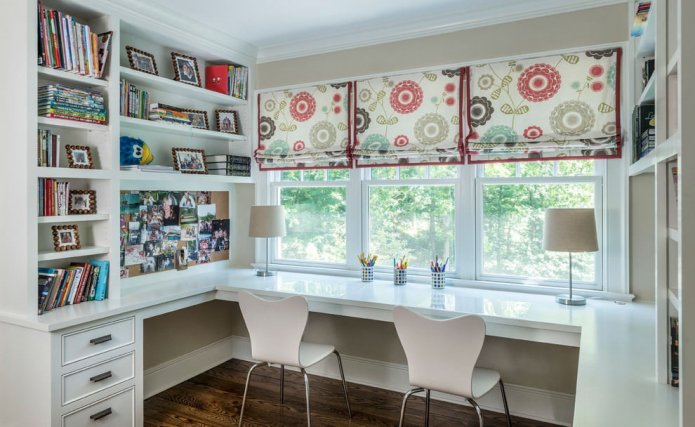
Living room
In the living room, ordinary curtains or tulle can be supplemented with curtains that are attached to the window frame with Velcro. Japanese curtains with Velcro will look good in a small living room.
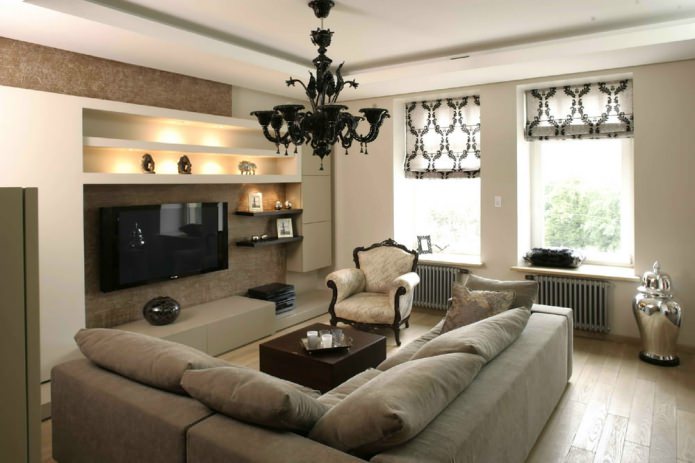
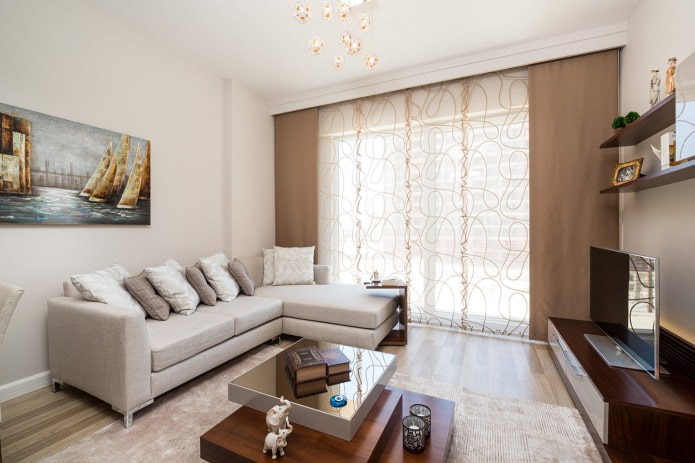
Bedroom
Translucent Roman blinds with Velcro or thick ones with a jacquard pattern are suitable for the bedroom. The uniqueness of such curtains is that they suit any bedroom style.

How to sew curtains with Velcro
Fabric consumption is individual, depends on the size of the window and the selected fabric.
Materials and tools:
- fabric,
- Velcro tape,
- sewing machine,
- scissors,
- ruler.
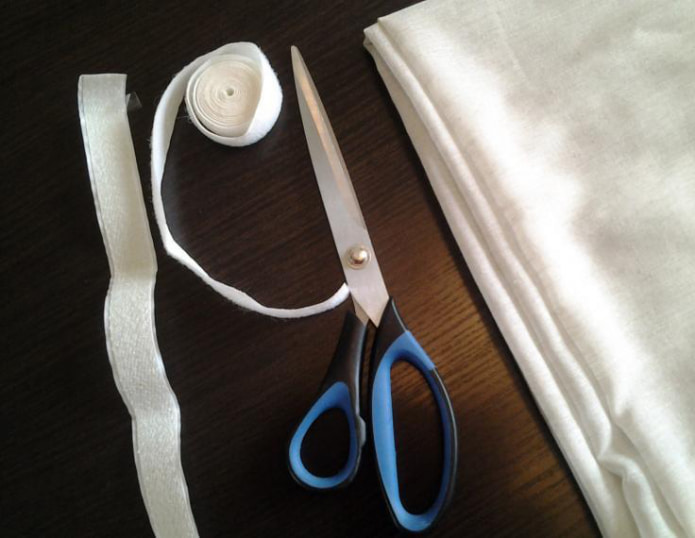
Work procedure
- Make measurements of the window. For a four-panel window 265 cm wide, you need to make 4 curtains, each 66 cm wide (264/4), where 1 cm is subtracted from the total width of the window. The height is measured with an allowance for Velcro of 2.5 cm at the top and bottom. For a window height of 160 cm, add 5 cm.
- For each curtain, you need to sew 4 ties from the same or different fabric. For one tie, you need to take a piece 10 cm wide and the height of the curtain + 5 cm. Sew the bottom of the tie.
- Then fold the tie in half and sew along the length from the inside.
- Turn inside out, fold the allowances on the long side and stitch. Iron all the ties. You can also make ties from lace or bobbin tape.
- Cut out the curtains according to the dimensions, taking into account the side allowances of 2 cm on each side and an allowance at the bottom +1 cm. Fold the sides of the curtain, then the bottom of the curtain using the soft part of the Velcro so that it is on the wrong side.
- Pin the soft Velcro to the top of the curtain on the front side, stepping back 1 cm from the top. Measure 7 cm from the edge of the curtain on both sides and place one tie under the Velcro at the bottom. Sew.
- Fold the Velcro to the wrong side and sew, placing 1 tie underneath. The curtain is ready.
- Degrease with a product (alcohol, nail polish remover) the place on the frame where the hard part of the Velcro will be glued. For convenience, you can cut the Velcro into pieces and glue them end to end.
- To fix the bottom of the curtain, it is enough to use hard Velcro along the edges.
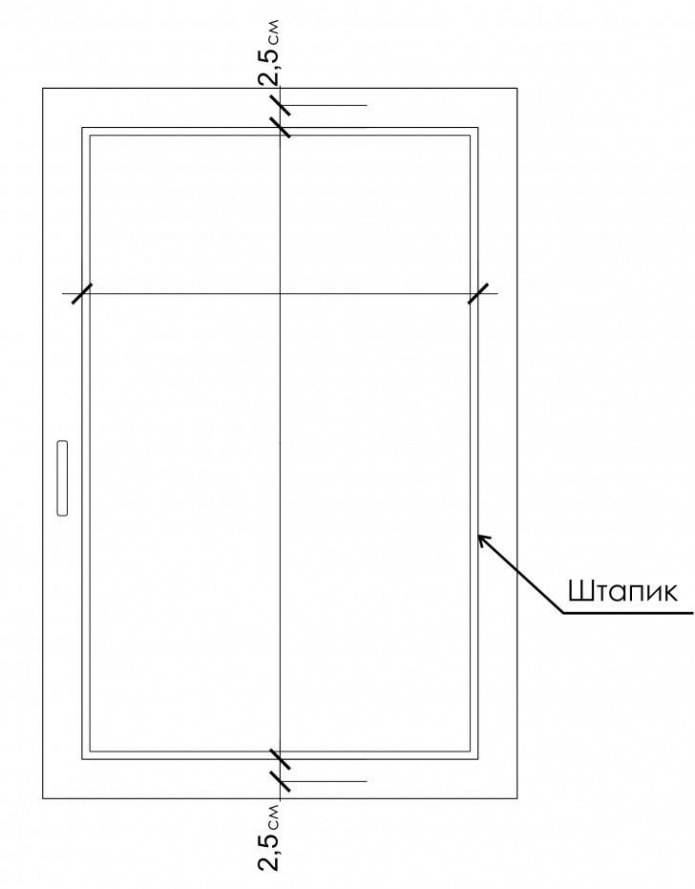
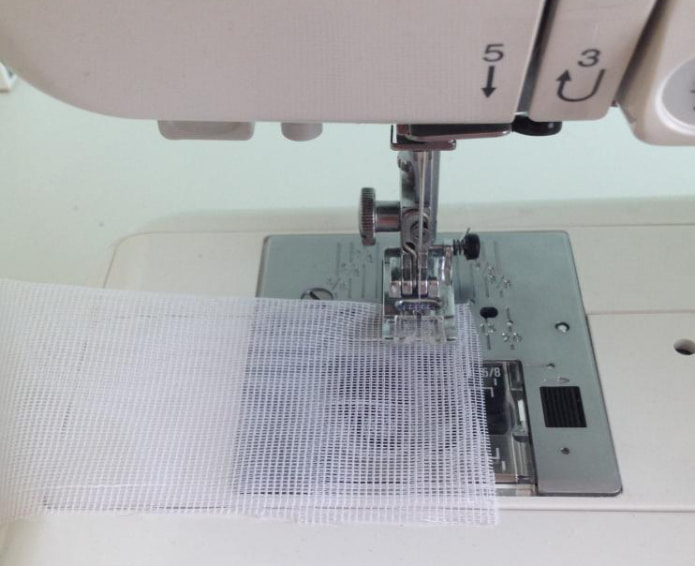
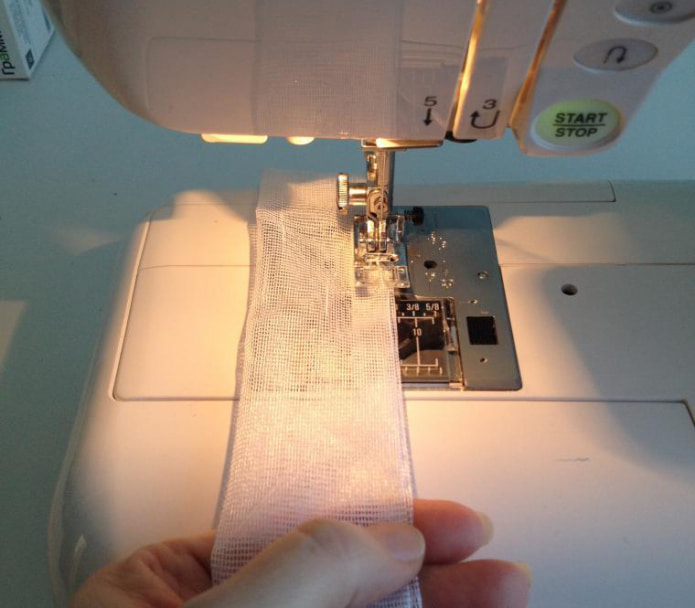
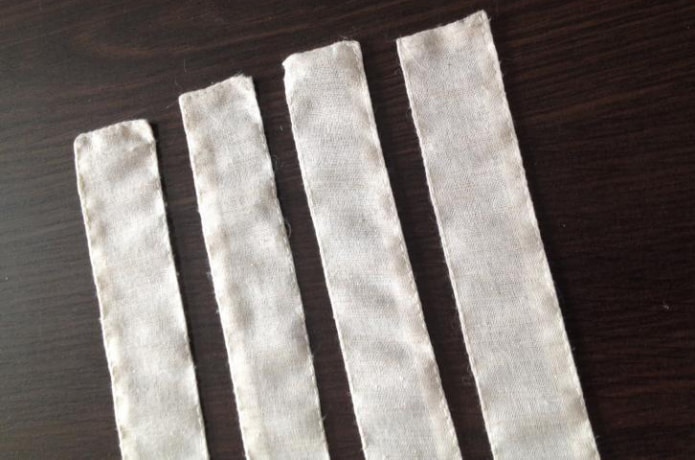
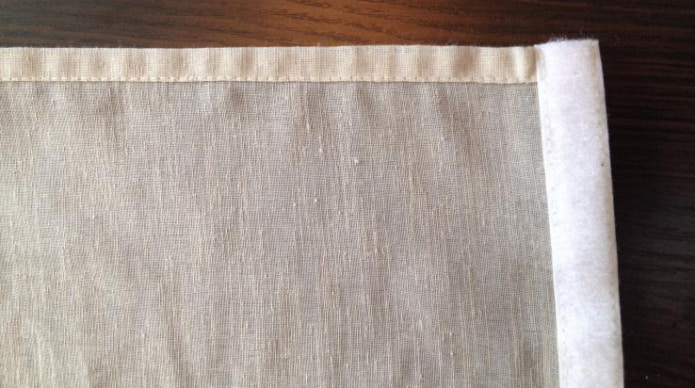
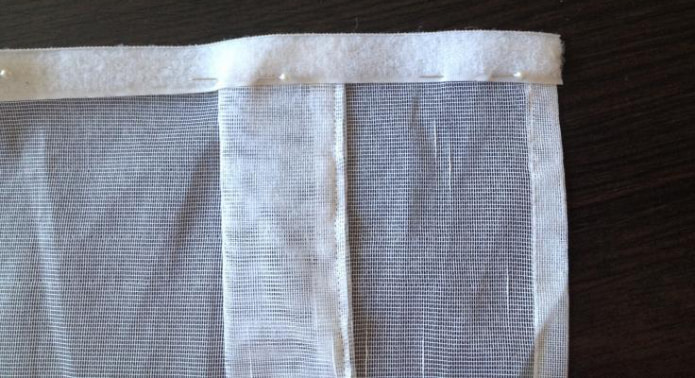
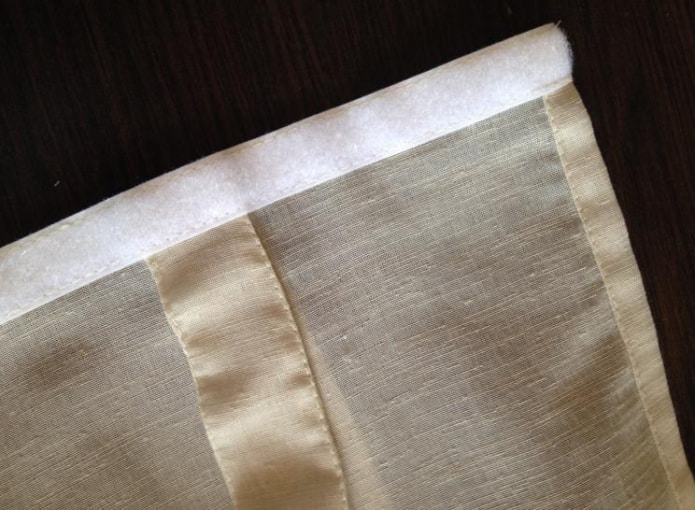
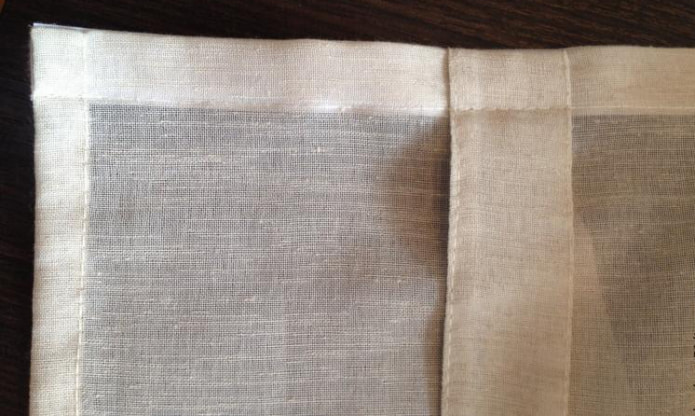
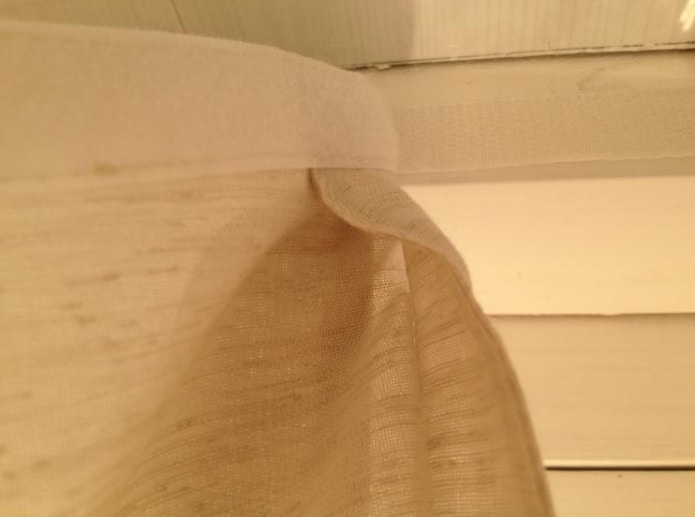
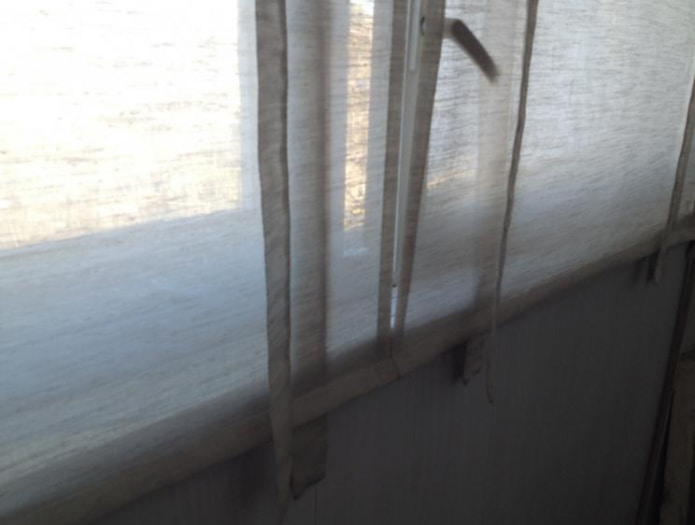
With the help of ties, you can lower and raise the curtains, you can also make a pocket for the rail at the bottom, then Austrian curtains will turn into Japanese ones.
When fastening curtains on the frame, they will protect the house from insects and will not come off in the wind thanks to the lower fastening on the Velcro. Such curtains are easy to remove and wash, they have an aesthetic appearance from the inside and outside.
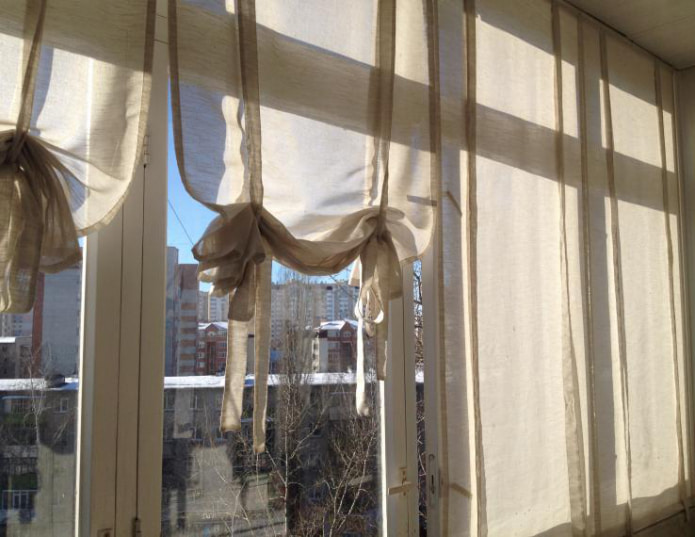
Curtains on loops with Velcro with your own hands
For ease of removal of curtains from the cornice, you can sew Velcro to the loops.
Materials and tools:
- sewing machine,
- iron,
- scissors,
- pins,
- cardboard,
- fabric.
Work order:
- The width of the curtain is calculated using the formula: subtract the length of the loops from the distance from the cornice to the desired length, then add 1 cm for finishing the top and 6 cm for finishing the bottom.
- Calculation for loops. The width of the loop (any) is multiplied by 2 and 2 cm are added to the resulting number for allowances. Loop length * 2 cm + 4 cm for allowances.
- The number of loops is calculated as follows: the width of the curtain is divided by the width of one loop. On the curtain, the loops are arranged as follows: multiply the number of loops by their width, subtract from the width of the finished curtain, and divide the resulting number by the number of distances between the loops. For example, 75-5*5=50. 50/4=12.5, which means that every 12.5 cm you will need to pin the loop with the seam facing up.
- Process the side seams of the curtain. Mark the allowance, iron the fold and stitch from the wrong side.
- Prepare the loops. Fold the pieces of fabric of the required width and length face inward and sew along the length with an indent of 1 cm from the edge. Steam the loop with cardboard inside so that the seam does not fray. Turn the product inside out, placing the seam in the center, also steam the seam with cardboard inside.
- Sew the pinned loops.
- Prepare the facing the length of the width of the curtain and 5 cm wide. Steam it.
- Apply to the top of the curtain from the front side, covering the loops with it. Pin and stitch, leaving a 1 cm free edge at the top.
- Steam the seam and the free edge, then fold the side edge under and pin.
-
Place a hard Velcro strip equal in width to the width of the loop under each loop and stitch from the inside with one line.
- Fold the edge of the facing under and stitch, leaving an indent of 1 mm from the edge.
- Place the soft part of the Velcro strip on the free edge of the tie from the front side, equal to the width of the loop and the height of the hard part of the Velcro strip. Stitch.
- Stitch the Velcro strip from the back side on all sides.
- Process the bottom of the curtain. Iron and stitch the deferred allowance. The curtain with Velcro and loops is ready and can be hung on the window.
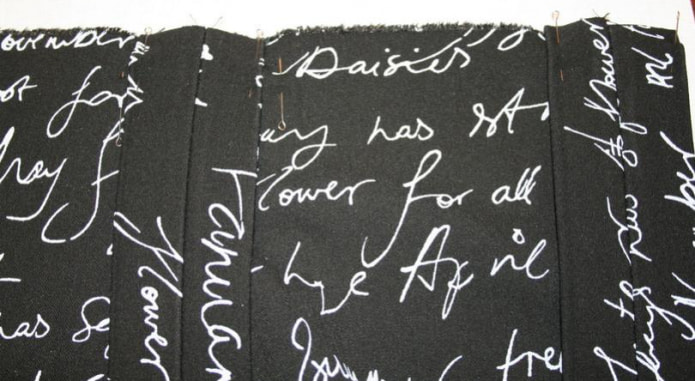
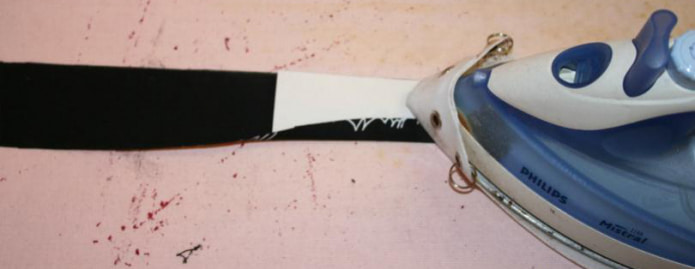
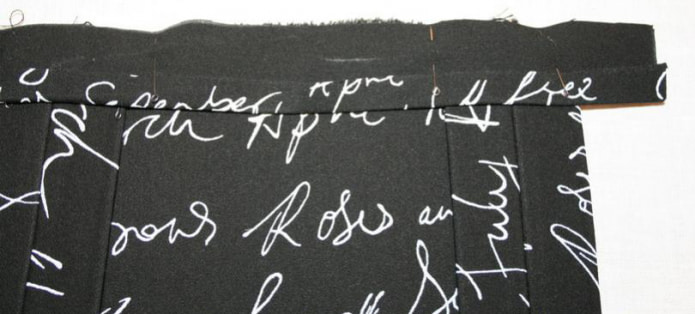
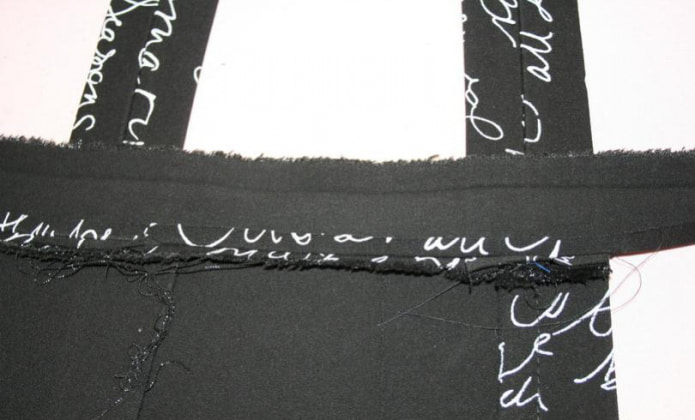
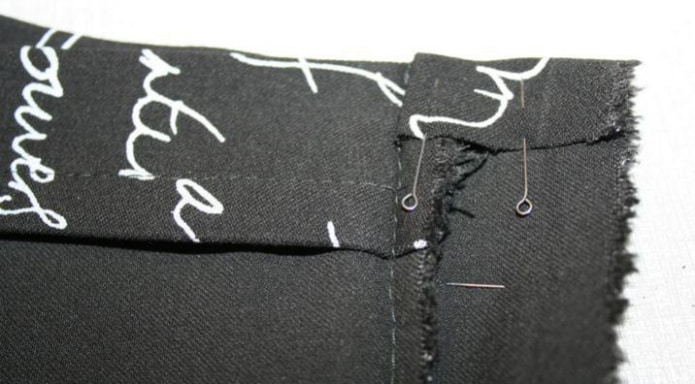
Place a rigid Velcro strip of the same width as the loop under each loop and stitch from the inside with one line.
Place a rigid Velcro strip of the same width as the loop under each loop and stitch from the inside with one line.
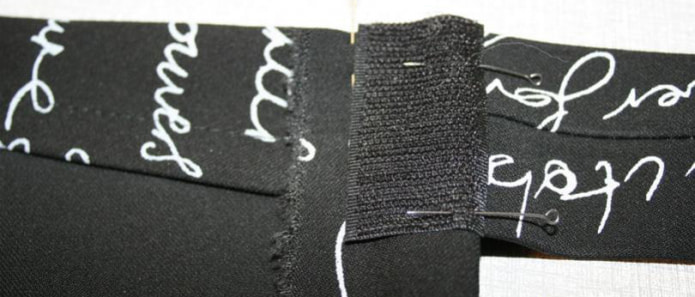
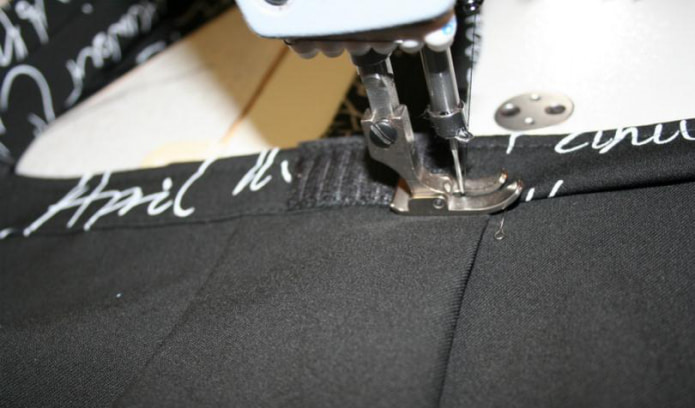
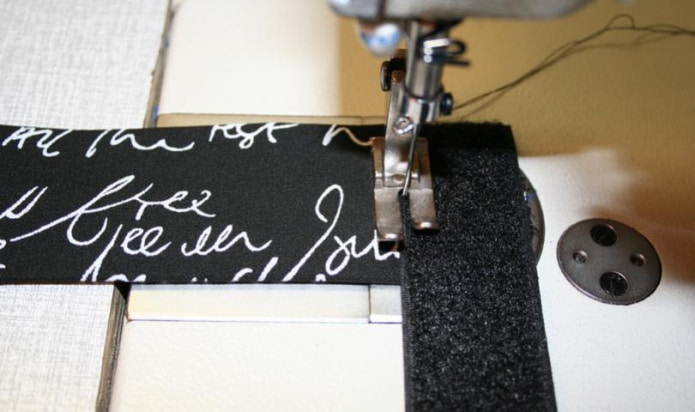
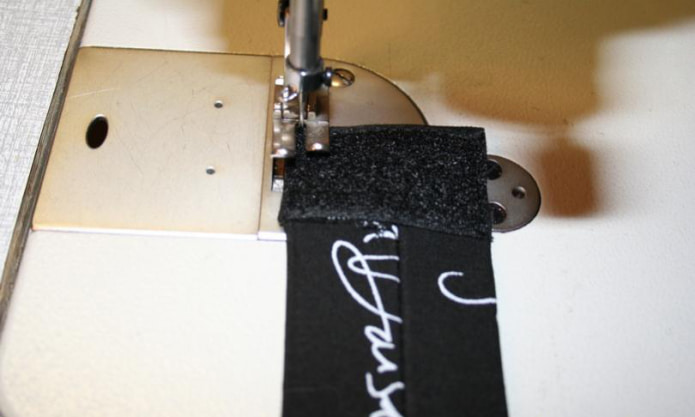
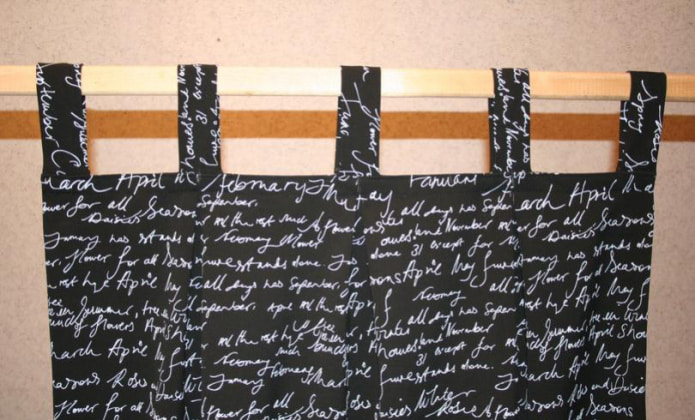
Video
These master classes will help you create unique curtains for the interior of your kitchen, balcony, loggia. Curtains with Velcro are easy to use, so you should consider this option for window decoration.